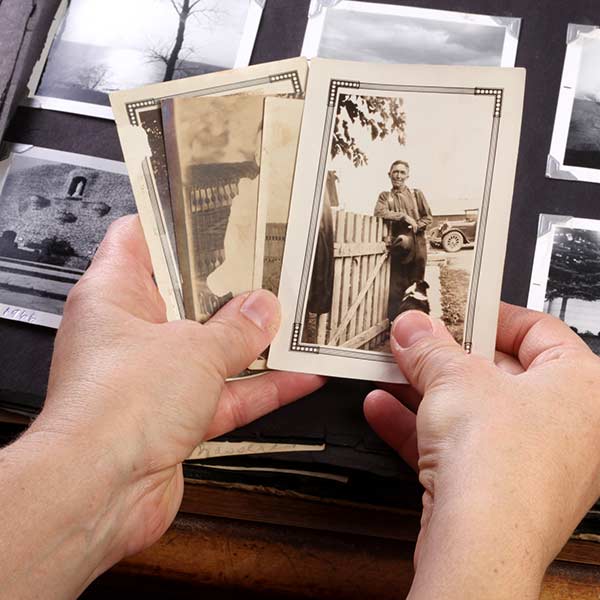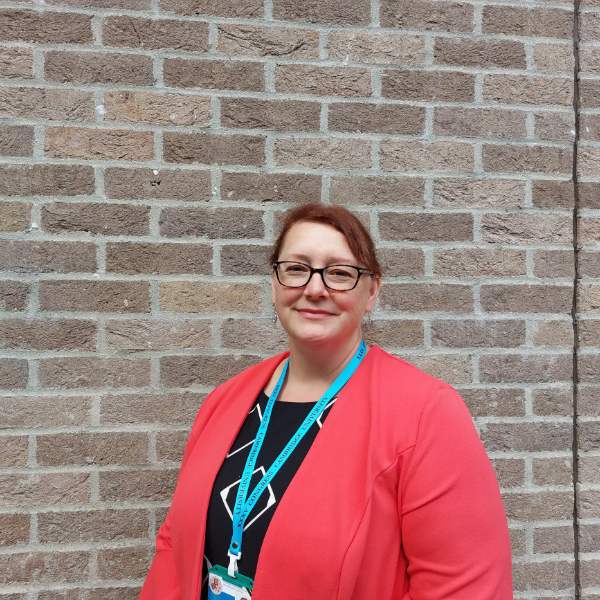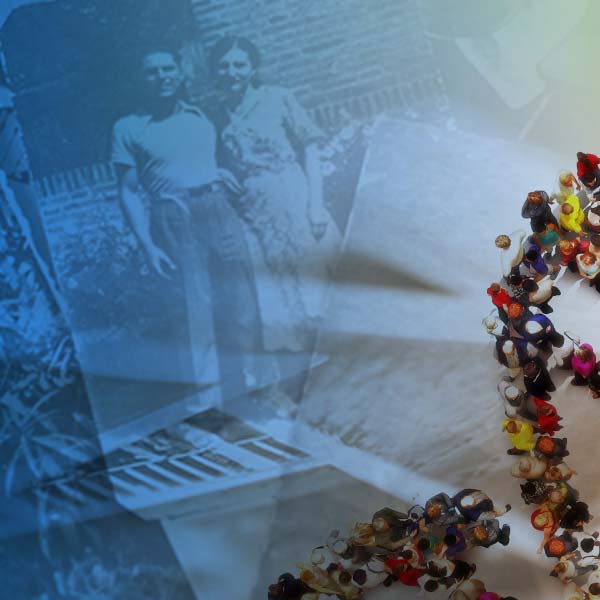PhD History with Genealogical Studies
ApplyResearch opportunities

The Place of Useful Learning
UK University of the Year
Daily Mail University of the Year Awards 2026
Scottish University of the Year
The Sunday Times' Good University Guide 2026

What you'll study
A PhD in history with a genealogical dimension may incorporate one or more of the following areas:
- using genealogical techniques and/or sources to advance knowledge in associated areas. This includes historical demography, local history, sociology etc. This research may focus on a particular event, area or question in history viewed through the ‘lens’ of its effect on a group, set of families or individuals
- reappraising previous research findings using genealogical research techniques and/or records and tools such as genetic genealogy. These can be historical, genealogical, demographic, etc.
- assessing and evaluating newly available or not-often-used resources. These can include archival collections, ways of using software, etc. This research might examine and evaluate primary sources and/or research methods for the enhancement of genealogical practice
- assessing and evaluating development in genealogical practice or supporting areas such as archives. This research can include questioning what, why and how genealogists do things, with the aim of delivering a better and more effective service
This is not an exhaustive list. You may wish to select a different focus altogether.
Postgraduate research at the Strathclyde Doctoral School
The Strathclyde Doctoral School offers a vibrant, student-centred research and training environment, dedicated to supporting both current and future research talent.
Bringing together all four of our faculties, it is committed to enhancing the student experience, increasing research outputs and opportunities, and ensuring that training is delivered at the highest standard.
As a postgraduate researcher, you will automatically become a member of the Strathclyde Doctoral School.


This is the only program like it in the world and this was the biggest draw... The freedom to set my schedule for workshops, lectures, and learning opportunities makes it very easy to fit my education in around my work and family schedules.
PhD History with Genealogical Studies
The Strathclyde Institute for Genealogical Studies
Watch our video to find out more about Genealogical studies here at Strathclyde:
Fees & funding
Fees may be subject to updates to maintain accuracy. Tuition fees will be notified in your offer letter.
All fees are in £ sterling, unless otherwise stated, and may be subject to revision.
Annual revision of fees
Students on programmes of study of more than one year (or studying standalone modules) should be aware that the majority of fees will increase annually.
The University will take a range of factors into account, including, but not limited to, UK inflation, changes in delivery costs and changes in Scottish and/or UK Government funding. Changes in fees will be published on the University website in October each year for the following year of study and any annual increase will be capped at a maximum of 10% per year. This cap will apply to fees from 2026/27 onwards, which will not increase by more than 10% from the previous year for continuing students.
| Scotland | £4,786 |
|---|---|
| England, Wales & Northern Ireland | £4,786 |
| Republic of Ireland |
If you are an Irish citizen and have been ordinary resident in the Republic of Ireland for the three years prior to the relevant date, and will be coming to Scotland for Educational purposes only, you will meet the criteria of England, Wales & Northern Ireland fee status. For more information and advice on tuition fee status, you can visit the UKCISA - International student advice and guidance - Scotland: fee status webpage. Find out more about the University of Strathclyde's fee assessments process. |
| International | £18,050 |
Faculty of Humanities & Social Sciences Scholarships
EU Engagement Scholarships are available to EU applicants who would have previously been eligible for Home (Scottish/EU) fee status.
International students
We've a thriving international community with students coming here to study from over 140 countries across the world. Find out all you need to know about studying in Glasgow at Strathclyde and hear from students about their experiences.

Supervisors
Prior to submitting your application, you will need to identify one member of staff from History and one from Genealogy who could share the supervision of your thesis. You should nominate the History staff member as your first supervisor, and the Genealogy staff member as your second supervisor.
Use these staff lists to identify a potential first and second supervisor based on how well their research interests fit with yours. Then send them an email to introduce yourself, with a copy of your CV. If you have already written a draft research proposal, attach it to your email.
If your chosen supervisors are available to work with you, they will confirm this, and your application can progress. If you are not sure who to contact, ask:
- Kate Mitchell (History) katharine.mitchell@strath.ac.uk
- Tahitia McCabe (Genealogy) tahitia.mccabe@strath.ac.uk
Genealogy supervisors
- Alasdair Macdonald (Genetic genealogy, surname studies, Scottish genealogy, medieval and modern genealogy)
- Tahitia McCabe (American and British genealogy, nineteenth century, migration studies)
- Calista Williams (British and Irish genealogy, Welsh history, nineteenth century, history of reading)
History supervisors
| Name | Areas of expertise |
|---|---|
| Patricia Barton |
|
| Tanja Bueltmann |
|
| Richard Finlay |
|
| Laura Kelly |
|
| Arthur McIvor |
|
| Jim Mills |
|
| Emma Newlands |
|
| Rogelia Pastor-Castro |
|
| Matthew Smith |
|
| Manuela Williams |
|
| John Young |
|
| Matthew Eisler |
|
| David Wilson |
|
| Elsa Richardson |
|
| David Murphy |
|
| Angela Turner |
|
| Karine Varley |
|
| Ksenia Wesolowska |
|
| Phil Cooke |
|
| Martin Mitchell |
|
| Niall Whelehan |
|
| Natalia Telepneva |
|
Support & development
The Graduate School
The Graduate School is a friendly and supportive study environment for research students studying subjects within Humanities & Social Sciences.
Our staff will support you through your studies and you'll become part of a community of students who get involved with our workshops, seminars and competitions.
Postgraduate Certificate in Researcher Professional Development (PgCert RPD)
Our PgCert RPD programme aims to ensure you get the most out of your current research activities at Strathclyde and helps you prepare for your future career as a researcher.
We'll help you recognise and develop your transferrable skills that'll have a positive impact on your research, now and in the future.
Careers
The University Careers Service can help you with everything from writing your CV to interview preparation. Take a look at our careers service pages to get more information.
Student support
From financial advice to our IT facilities, we have a wide range of support for all students here at Strathclyde. Get all the information you need at Strathlife.
Our research
The Genealogical Studies department are involved in a range of research activities focusing on documentary and genetic evidence. Find out more about our research.

Apply
Entry requirements
Normally, a first-class or upper second-class UK Honours degree, or overseas equivalent, in history or a related subject. For PhD applications, we also normally require a Masters degree, or overseas equivalent, in history, genealogy/family history or a related subject. For those without a Masters degree or overseas equivalent, in genealogy/family history, we require evidence of extensive experience in genealogical research.
The application
During the application you'll be asked for the following:
- your full contact details
- transcripts and certificates of all degrees
- proof of English language proficiency if English isn’t your first language. For postgraduate studies, we require a minimum overall IELTS score of 6.5 or equivalent (no individual test score below 5.5, the test must be taken within two years of the programme start date)
- two references, one of which must be academic
- funding or scholarship information
- research proposal of 1,500-2,000 words in length, detailing the subject area and topic to be investigated. Also indicate your chosen supervisors in the research proposal. Read our helpful guidelines on writing PhD Proposals
- by filling these details out as fully as possible, you'll avoid any delay to your application being processed by the University
- if your chosen supervisors are available to work with you and you meet the criteria listed above, an offer to study will be sent to you through Pegasus, our online application system
Accepting an offer
Once you’ve accepted our offer, we’ll need you to fulfil any academic, administrative or financial conditions that we ask.
UK or EU students
If you're applying as a UK or EU student, you'll then be issued with your registration documentation.
Start date: Oct 2025 - Sep 2026
History with Genealogical Studies
Start date: Oct 2025 - Sep 2026
History with Genealogical Studies
Start date: Oct 2026 - Sep 2027
History with Genealogical Studies
Start date: Oct 2026 - Sep 2027
History with Genealogical Studies
Start date: Oct 2027 - Sep 2028
History with Genealogical Studies
Start date: Oct 2027 - Sep 2028
History with Genealogical Studies
Contact us
Fees & funding
Fees may be subject to updates to maintain accuracy. Tuition fees will be notified in your offer letter.
All fees are in £ sterling, unless otherwise stated, and may be subject to revision.
Annual revision of fees
Students on programmes of study of more than one year (or studying standalone modules) should be aware that the majority of fees will increase annually.
The University will take a range of factors into account, including, but not limited to, UK inflation, changes in delivery costs and changes in Scottish and/or UK Government funding. Changes in fees will be published on the University website in October each year for the following year of study and any annual increase will be capped at a maximum of 10% per year. This cap will apply to fees from 2026/27 onwards, which will not increase by more than 10% from the previous year for continuing students.
| Scotland | £5,006 |
|---|---|
| England, Wales & Northern Ireland | £5,006 |
| Republic of Ireland |
If you are an Irish citizen and have been ordinary resident in the Republic of Ireland for the three years prior to the relevant date, and will be coming to Scotland for Educational purposes only, you will meet the criteria of England, Wales & Northern Ireland fee status. For more information and advice on tuition fee status, you can visit the UKCISA - International student advice and guidance - Scotland: fee status webpage. Find out more about the University of Strathclyde's fee assessments process. |
| International | £19,850 |

